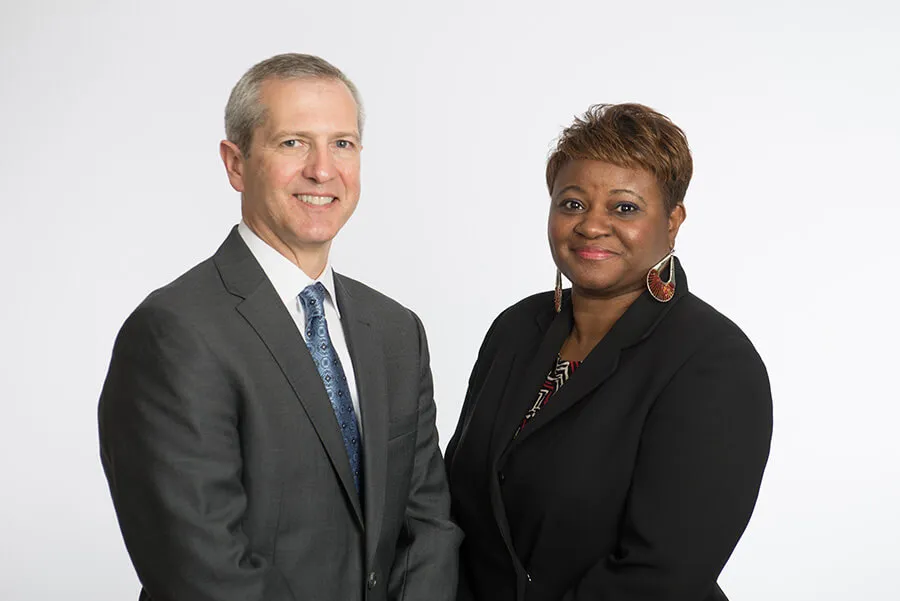The Full Scoop on Third-Party Liability Insurance and Claims
Typically, an accident involves two parties, so when a third-party is involved in one way or another, everything immediately becomes more complicated.
Third-party liability claims happen when a third party has a legal obligation to pay for the fallout of an accident where one party was harmed. To further complicate things, that third party might not have been involved in the accident.
If you suspect third-party liability will play a role in your accident claim, then it’s in your best interests to speak with a qualified attorney about your situation. The good news is that our team of experienced lawyers can help you recover any compensation you deserve. Not only will we review your case for free to evaluate the levity of your case, but we’ll also give you solid legal advice you can rely on even if you ultimately don’t hire our firm.
Are you interested in learning more about third-party liability first and how it might impact your case? Learn everything you need to know about third party liability below.
Infographics
What is Third-Party Liability?
Third-party liability is a legal obligation that requires a third party to pay, either in part or in full, the financial expenses related to an accident or injury. As you’d imagine, third-party liability situations can get very complicated very fast. Not only are several different parties involved, but each party may have different degrees of fault and liability. What’s more, it’s completely on the shoulders of the injured to discern and determine who to seek out compensation from.
There are several situations that can surface in which a third party plays a role in an accident. For instance, worker’s compensation insurance might cover the losses of an accident that occurred in the workplace regardless of fault. Another example is when you have purchased an insurance policy that will cover the expenses related to claims filed against you by a third party. For example, if you were to cause an accident that destroyed someone else’s mailbox, then you might not be liable for those damages out of pocket. Instead, your insurance company would be legally liable to pay for the losses.
Third-Party Liability Coverage
Third-party liability coverage is a type of liability insurance. In a nutshell, a third-party insurance policy is purchased by one person (party one) from the insurance company (party two) for protection from a third party (party three). There are several different types of coverage you can seek out depending on what you’d like protection from. We’ll get into more detail on that below.
The reason that third-party liability coverage is important is that it protects you from getting sued or suffering if a third-party pursue damages against you. For instance, if you’re a business, then you could be liable for any injuries your workers sustain during the course of their employment. If you purchase worker’s compensation insurance, though, that policy will pay out any damages for you. While you’ll have to pay for the coverage monthly, you won’t have to shell out large sums of money in the event of a disastrous accident.
Another reason why third-party liability coverage is important is because it is mandated by law in some situations. An example of this is worker’s compensation. Most employers are required by law to take out this type of insurance, especially in specific industries. Another example is in some states when it comes to automobile insurance. Many states require drivers to take out these types of policies to ensure that coverage is available to injured victims who need it most.
What are the Different Types of Third-Party Liability?
As you can tell by some of the examples outlined above, there are many different types of third-party liability situations. From worker’s compensation situations to car accidents, third parties can get involved in accidents in many ways. Here are a few of the main categories that a third-party liability situation could fall under:
- Health insurance
- Car accidents
- Personal injury situations
- Work injuries
- Employment practices liability
Below, we’ll go into more detail about each of these different types of third-party liability situations, coverage options, and more.
Third Party Liability in Health Insurance
The number one situation where third-party coverage comes into play is when that injured person is attempting to get payment from their health insurance policy. As soon as a claim gets filed, your health insurance company will look over the claim. An agent will specifically seek to determine whether third-party liability exists or potentially exists in the ordeal.
If your insurance company finds that another party might have a legal obligation to pay, then they will inform you about that potential situation. They may request more details and more information before accepting your claim. In many cases, your claim might get denied because your insurer will explain that someone else has a legal obligation to pay up.
It can be very frustrating to receive a denial or to get asked for more information regarding your claim. Regardless, this step is very important because it ensures that individuals with a legal duty to pay these claims get held accountable.
Third Party Liability in Work Injury Cases
One of the most common parties that end up being responsible for medical bills arising from an accident is worker’s compensation insurance companies. Businesses that employ individuals become legally liable for any accidents that occur during the course of that employee’s work duties. In the majority of cases, a business won’t be able to take the financial hit that comes along with serious accidents and injuries.
For that reason, businesses take out worker’s compensation policies to protect themselves.
When a work-related injury or illness occurs, the worker’s compensation policy kicks in regardless of fault. The policy will provide compensation for the injured person’s medical bills, and the employer does not have any further obligations.
It’s a win-win-win for all parties involved. The worker’s compensation company gets paid each month by various companies and only pays injured employees when an accident occurs. Businesses pay into their policies monthly, which helps them avoid a massive windfall of losses in the event of an accident. Employees get the security and peace of mind knowing that their medical bills will be taken care of in the event of injury.
Third-Party Personal Injury Insurance Claims
Third-party liability might also come into play during personal injury claims. Public liability insurance or employment practices liability insurance protects businesses from third-party claims. Product liability insurance helps protect companies that create products from third-party liability claims.
Businesses that make products are legally liable for any injuries that occur when consumers go to use that product. For that reason, these companies take out insurance to cover any potential third-party claims. As an example, if you buy a Coca-Cola from a grocery store and that drink contains toxic chemicals that make you sick, you can seek out compensation from the Coca-Cola manufacturer. If that manufacturer has product liability insurance, then the insurance company will handle the fallout of the claim rather than the Coca-Cola business itself.
Employment Practices Liability Situations
Another form of third-party claim arises when a customer, client, or vender suffers after an injury or accident due to the actions of an employee. When that happens and if the employer has employment practices liability insurance, then that insurance company will take care of the claim for the employer.
For instance, let’s say that a consumer was walking in a busy grocery store when they notice water on the floor. They tell an employee, who should follow the procedure and clean up the area. Instead, the employee continues to stock shelves and ignores the problem. Several minutes later, a different customer slips on the water and gets hurt. In this case, the employer would be held liable for the fallout of the accident because the employee was negligent in preventing the incident. The good news is that the third-party employment practices liability coverage will kick in, so the insurance company will be the one paying for and dealing with the details of the claim.
What is Third Party Liability in a Car Accident?
Car accidents happen on a daily basis, and it’s often very difficult to determine who is at fault, who should bear the financial losses of the crash, and how to move forward after a claim. Third-party liability car insurance helps provide protection to drivers who have a car insurance policy, get into an accident, and then find out that the other driver does not have adequate insurance to cover the losses associated with the crash.
In these cases, the driver who causes the accident is considered the third party. There are two main types of third-party liability car insurance policies you can take out:
- bodily injury liability
- property damage liability.
As you’d imagine, bodily injury liability insurance covers the financial expenses related to physical injuries you suffer after an accident. This type of insurance will cover losses like lost wages, medical bills, and pain and suffering. Property damage liability, on the other hand, covers the financial losses associated with a loss of property or damaged property. In other words, the policy will cover the losses associated with any damage to your vehicle or damage caused to other nearby property like mailboxes or other structures.
Do You Need Third-Party Insurance? Are You Covered by Third-Party Insurance?
After reading all the different scenarios outlined above, you may wonder – do I need to purchase a third-party insurance policy? It’s important to seek out the answer to that question because these policies are required by law in some situations. Federally, nearly all employers are required to take out worker’s compensation insurance. On the state level, many citizens are obligated to take out third-party automobile insurance. If you’re not sure about your legal obligations, then it’s wise to consult with an attorney in your area about your situation. A qualified lawyer will help you better understand your legal duties.
On the flip side, if you’ve recently suffered an injury after an accident that wasn’t your fault, then you may wonder if you’re covered by third-party insurance. The answer to that question heavily depends on the facts and details surrounding your accident. To get a better idea of whether third-party insurance might cover you, it’s best to consult with a legal expert who can look over your case and evaluate it. A good lawyer will be in a better position to make an informed decision on who or where you can seek out compensation from. They can also identify potential parties that should have been carrying third-party insurance coverage by law.
Do You Have More Questions About Third Party Liability?
In a nutshell, third-party liability claims involve you, the person responsible for your accident or injury, and a third party or person responsible for the injury. Often, the third party gets held liable for damages caused by the second party. When this happens, that third party is responsible to pay compensation for any medical expenses, pain and suffering, property damage, future expenses, and more.
Keep in mind that a physical injury isn’t necessary in all third-party liability claims. You might also have a claim if you’ve suffered harm as a result of defamation, slander, or other types of civil wrongdoing.
Are you still unsure if third-party liability played a role in your accident? Are you currently considering seeking out a lawsuit? Do you have more questions about third-party liability? If so, then we invite you to reach out to Singleton Law Firm Atlanta office now to get in touch with one of our qualified lawyers. We’ll answer all your legal questions and evaluate your claim. If you’d like us to move forward, then we’ll help you pursue your case, negotiate when necessary, and get the compensation you deserve. Contact us now to get started.
Infographic





